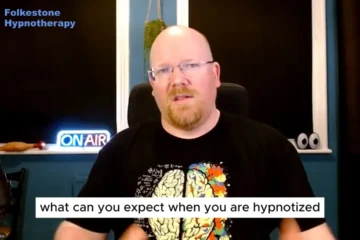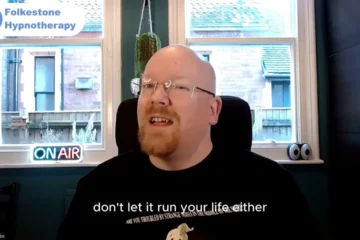In the sprawling field of methods available to aid in smoking cessation, hypnosis gently glows with a distinctive, often understated light. As a hypnotherapist, the power of delving into the subconscious and guiding it to foster healthier habits is an experience that never ceases to amaze me. Hypnosis, operating on a level that goes beyond mere conscious willpower, provides a uniquely serene passage towards smoking cessation.
When the conscious mind is set at ease, the subconscious comes into play, making it receptive to constructive suggestions. This method seeks not merely to suppress, but to rearrange mental associations related to smoking, and re-purpose the part of the client’s mind that drives them to smoke. It’s a powerful part, as it incites people to do something they don’t like, like clockwork, even though they know it’s bad for them physically and financially. Just imagine what you could do with that kind of subconscious automatic drive if you were to aim it toward something you actually want! Many individuals have found hypnosis to be the key that has liberated them from the shackles of smoking.
While hypnosis invites individuals into a tranquil journey towards a smoke-free life, other methods proffer alternative paths, each with their own set of merits and demerits.
Nicotine Replacement Therapy, a route laden with patches, gums, and other nicotine-infused products, aims to gradually extinguish nicotine dependence by substituting the source. Despite its popular use and certain level of efficacy, it prolongs nicotine exposure and may come with its own set of challenges and withdrawal symptoms. And if nicotine weaning were the answer, just some 1 cigarette fewer every day. Within 3 weeks, you’d be smoke-free …… except smokers know it doesn’t work like that.
Anti-smoking medications like Champix and bupropion may offer a pharmaceutical pathway to quitting. Yet, while they may pave the way for some, others may find themselves entwined with potential side effects and a journey that is pharmacologically dependent.
Those methods focus on the nicotine element of smoking but don’t address the psychological element. Even when people are successful in their attempt to stop smoking, the psychological associations might still be there. A few months or years later, when things go tough, people may fall back into their old habit as they still somehow believe it would help them deal with stress (hint: it doesn’t).
Vaping, while heralded by some as a modern means to quit, finds itself engulfed in controversy and questions regarding its long-term impact on health and cessation efficacy. Also, you merely replace a very bad habit with a slightly less bad habit and call it “healthy”.
Hypnosis, in its elegant approach, circumvents the overt struggles encountered with physical withdrawals and side effects prevalent in other methods. It seeks to reshape the smoker’s relationship with tobacco on a foundational level, addressing not just the physical but the psychological tendrils of this often long-held habit. I’m not telling my client to stop smoking, mainly because nobody likes being told what to do. Instead, I help them reframe their perspectives and nurture a genuine disinterest in smoking, rather than waging a constant battle against cravings and withdrawal. They still smoke as many as they want, just like I do as an ex-smoker. It just happens that for most people, that number is zero. The aim is to help clients leave my office as genuine non-smokers.
Of course, hypnosis is not a magic bullet, but it is the most effective way of stop smoking, according to the largest ever scientific comparison of ways of breaking the habit.
So if you want to set yourself free from that old nasty habit, make yourself feel better, look better and be better off financially, just give me a shout now.


